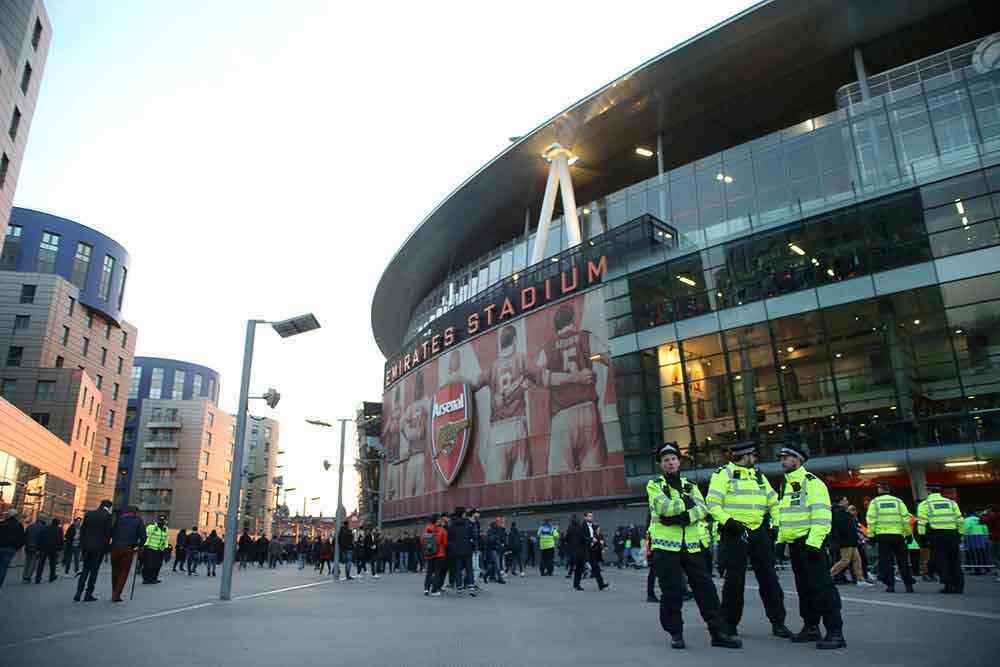The 19 year-old attacking starlet, Gabriel Jesus will be sold this year. That’s been settled. Once the Rio Olympics are over, the brightest attacking talent inside Brazilian football will be leaving for Europe. His destiny, however, remains undecided.
Even just yesterday, it broke in Brazil that the purpose of Ronaldo’s visit to London was to meet with Arsene Wenger and offer Gabriel to Arsenal.
“The office of Alexandre Mattos is always full of business people,” says Paulo Nobre, the Palmeiras president, “offering the player all over the place.
“But that does not mean Palmeiras is negotiating with anyone. Any one of our players can be offered around, but the negotiation must be held directly with the club.”
Cristiano Simoes, Gabriel’s prime representative, goes a step further.
“I have a partner, Energy Sports, and we will not give power of attorney to anyone. Some business people have approached us with million dollar proposals, but we have a plan with Gabriel and do not think to rip it up,” he said.
Simoes stand to make a killing from Gabriel’s sale, boasting the largest percentage of the player’s transfer rights.
Palmeiras originally held 75 per cent of Gabriel’s contract before it was renegotiated. The forward’s new deal, penned in March, now runs to 2017, with the option of a further two seasons, and the breakdown of those whom hold rights to his transfer has expanded: Palmeiras (30%), Cristiano Simoes (32.5%), Fabio Caran (22.5%) and Gabriel (15%).
In this new agreement includes two buyout clauses.
“Gabriel Jesus has a five-year contract with Palmeiras and he will only leave if someone pays his contractual clause, which is Ä40 million,” insists Nobre.
However, there is a second option, which Gabriel and Simoes insisted upon when signing. If any of Real Madrid, Barcelona, Paris Saint-Germain, Manchester United or Bayern Munich came knocking, Palmeiras would allow Gabriel to leave for a cut-price Ä24 million.
“The contract is confidential, so I can not talk about this,” insists Simoes, who was in Italy last month, drumming up business.
He spoke with Juventus and encouraged their general manager Beppe Marotta to join the auction. But two new clubs came forward last week, with Atletico Madrid and Manchester United making approaches to the Palmeiras board about opening negotiations.
The enquiries came via the same agent, who not only was representing United and Atletico, but also a second Premier League club, which is yet to be identified.
Nobre and his board are determined to hold their nerve, knowing an impressive Rio campaign will drive up his asking price. Both the president and Simoes, however, are in agreement: Gabriel will be sold after the Games.
“Until then it is certain that he stays here,” says Simoes. “Then (after Rio) we believe good and concrete proposals will arrive.
“Gabriel is calm and is not interested in knowing about these matters, but he knows he has a lot of people interested in signing him. Today, he is now the main player for Palmeiras to cash in.”
Is the hype justified? Palmeiras fans believe so. Gabriel was a favourite of the support before even making his first team debut. 37 goals in 22 games for Palmeiras in the cut-throat U17 championship had fans demanding he be promoted to the first team. There were even petitions organised.
“We knew he was a good player,” recalled U17 coach Bruno Petri, “but we couldn’t risk pushing him forward too quickly. Too often you see young players become lost when promoted too soon.”
Eventually, Gabriel made his debut last March. But it wasn’t until he came under the wing of Cuca at Palmeiras that his form – and profile – exploded.
Cuca, upon his appointment, tapped up everyone at the club. Directors, Alberto Valentim, the assistant coach, Gabriel’s teammates, including Ze Roberto, were all consulted. Cuca knew he had inherited something special and was determined to find the best way to utilise it. The feedback was almost unanimous.
“We looked at where he had been playing. On the wing he was isolated and we were asking too much of him defensively,” revealed the coach. “Everyone said, he needed to play with more freedom.
“So we had him float between the lines, working off a centre-forward. He’s now enjoying himself.
“He’s a clever player, fast, with the ability to score regularly.”
Gabriel chimes in, “Look, I am happy to help my teammates defensively. But I wasn’t getting myself in attacking positions when we had the ball. Cuca noticed this and gave me my new position.
“I was happy and I’ve been able to score even more goals this season.
“Now, when we break, I can use my speed on-one-on and get myself into even more scoring positions.”
The irony, of course, is these adjustments will only accelerate the prospect of Cuca losing a player he has fashioned his team around this season.
“I think he is the great promise of Brazilian football, hopefully he continues the way he is, with some corrections that we have to do, he will become a great player,” says Cuca.
And as if encouraging the likes of United and Atleti, the coach adds: “He is a great player now, but he will keep getting better.”
Contributed by Chris Beattie from Tribalfootball.com
